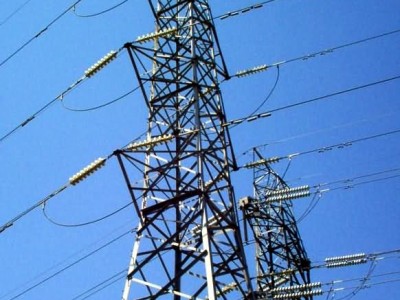Federal Climate Policy
A Roadmap for State Comments on the Clean Power Plan
Considerations for State Regulators Tackling EPA’s §111(d) Proposed Rule
Yesterday, EPA announced its decision to extend the comment period on the Clean Power Plan—the agency’s proposed rule to regulate power plant greenhouse gas (GHG) emissions under Clean Air Act § 111(d)—until December 1, 2014. The comment period was originally scheduled to last 120 days, until October 16th. You can find a list of compiled …
Continue reading “A Roadmap for State Comments on the Clean Power Plan”
CONTINUE READINGCompiled Resources on the “Clean Power Plan” Proposed §111(d) Rule
All LegalPlanet resources on regulation of GHGs under 111(d), plus critical EPA resources and other valuable analyses
Today, EPA officially published the Clean Power Plan, the agency’s proposed rule to regulate power plant greenhouse gas emissions under Clean Air Act § 111(d), initiating a public comment period that will close on December 1, 2014. I have taken this as an opportunity to compile all of the various LegalPlanet resources on regulation of …
Continue reading “Compiled Resources on the “Clean Power Plan” Proposed §111(d) Rule”
CONTINUE READINGPART IV – EPA’s Proposed 111(d) Rule: Some Insights & Open Legal Questions
The fourth and final post in a series offering some initial insights and observations, and posing several open legal questions related to EPA’s proposed 111(d) rule.
This is the fourth and final post in a series offering some initial insights and observations, and posing several open legal questions related to EPA’s proposed 111(d) rule. (See Parts I, II, & III.) Over the course of this series, I welcome our knowledgeable and insightful LegalPlanet audience to join the dialogue in the comments. …
Continue reading “PART IV – EPA’s Proposed 111(d) Rule: Some Insights & Open Legal Questions”
CONTINUE READINGPART III – EPA’s Proposed 111(d) Rule: Some Insights & Open Legal Questions
The third in a series of posts offering some initial insights and observations, and posing several open legal questions for conversation
This is the third in a series of posts offering some initial insights and observations, and posing several open legal questions related to EPA’s proposed 111(d) rule. (See the first and second posts.) Over the course of this series, I welcome our knowledgeable and insightful LegalPlanet audience to join the dialogue in the comments. What …
Continue reading “PART III – EPA’s Proposed 111(d) Rule: Some Insights & Open Legal Questions”
CONTINUE READINGPART II – EPA’s Proposed 111(d) Rule: Some Insights & Open Legal Questions
The second in a series of posts offering some initial insights and observations, and posing several open legal questions for conversation
This post is the second in a series of posts offering some initial insights and observations, and posing several open legal questions related to EPA’s proposed 111(d) rule. (See the first post here.) Over the course of this series of posts, I welcome our knowledgeable and insightful LegalPlanet audience to join the dialogue in the …
Continue reading “PART II – EPA’s Proposed 111(d) Rule: Some Insights & Open Legal Questions”
CONTINUE READINGEPA’s Proposed 111(d) Rule: Some Insights & Open Legal Questions (PART I)
The first in a series of posts offering some initial insights and observations, and posing several open legal questions for conversation
As LegalPlanet reported earlier this week, EPA has released a proposed rule to regulate carbon dioxide (CO2) emissions from existing power plants under Clean Air Act § 111(d). You can read the full text of the proposed rule here. The rule would have the overall effect of reducing CO2 emissions from existing power plants or “electric generating units” …
Continue reading “EPA’s Proposed 111(d) Rule: Some Insights & Open Legal Questions (PART I)”
CONTINUE READINGEPA Releases Section 111(d) Rule for Existing Power Plants
Rule would reduce climate change-related carbon dioxide emissions from existing power plants 30 percent below 2005 levels by 2030
Today, EPA formally released its long-awaited rule to regulate carbon emissions from existing power plants under Clean Air Act § 111(d). Read the full text of the rule here. As leaked to the media yesterday, the rule would have the overall effect of reducing carbon dioxide emissions from electric generating units (EGUs, or power plants) 30 percent …
Continue reading “EPA Releases Section 111(d) Rule for Existing Power Plants”
CONTINUE READINGEPA to Release Proposed Rule for Existing Power Plants under Clean Air Act 111(d) that Cuts Carbon Emissions 30% from 2005 Levels by 2030
This rule represents one of the most significant actions ever taken by the United States to mitigate climate change
Major news outlets are reporting that the U.S. Environmental Protection Agency (EPA) will release on Monday a proposed rule for the regulation of existing power plants under Clean Air Act section 111(d) that would reduce carbon emissions from the electrical generating sector 30 percent from 2005 levels by 2030. This rule follows the recent release …
CONTINUE READINGThe State of the Union — Energy and Climate Change
A very lengthy discussion of energy– some good language on energy efficiency and renewables, some not-so-good language about oil, but with an overall emphasis on technological innovation. Here’s what the President said about climate change: And over the last four years, our emissions of the dangerous carbon pollution that threatens our planet have actually fallen. …
Continue reading “The State of the Union — Energy and Climate Change”
CONTINUE READINGWhy the Feds Should Pay the Administrative Costs of Implementing AB 32
There’s been a lot of discussion of whether Prop 26 interferes with the use of fees to pay the administrative expenses for AB 32. I would like to suggest an alternative solution: the Feds should pick up the tab. This may seem a little far-fetched, given the current political situation, but it makes real sense …
Continue reading “Why the Feds Should Pay the Administrative Costs of Implementing AB 32”
CONTINUE READING





